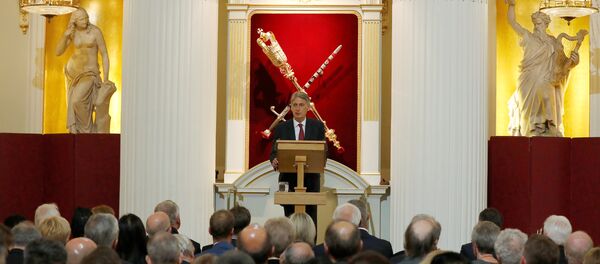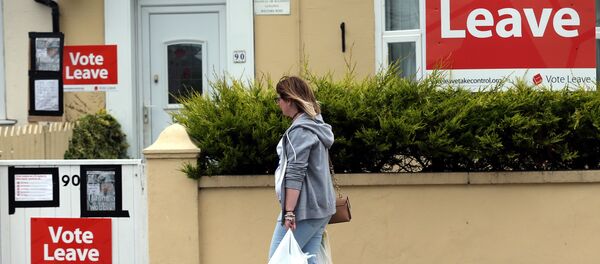In the beginning of 2017, employment in Britain had continued to rise and gross domestic product (GDP) growth had remained stabled at 2 percent.
The positive outlook enabled the government at the time to claim that the UK was still the fastest growing of the major western economies, and foreign investment also went up.
This has changed however, and concerns are starting to emerge regarding the medium-term outlook for the country's economy.
Bank of England (BoE) Governor Mark Carney's recent assessment that uncertainty over Brexit is already weighing on the economy has added more fuel to the fire.
The BoE voted to hold interest rates and cut growth forecasts.
The sterling also dropped to a nine-month low against the euro, after growth forecasts were revised.
We've published our latest quarterly #InflationReport https://t.co/DXpoYeEi8y #SuperThursday
— Bank of England (@bankofengland) August 3, 2017
According to Professor Begg at the LSE, the economy had already began to "decelerate in the first quarter of 2017," however this was damaged further by Prime Minister Theresa May's failed gamble at a snap election, which caused massive disruption.
The growth figures released at the end of July 2017 confirmed the slowdown of the economy in the first half of 2017.
The three key trouble areas are the lack of productivity growth, UK productivity in the first quarter falling to 0.5 percent, and this taking it below the peak before the start of the financial crisis in the fourth quarter of 2007.
How the current political fixation with Brexit jeopardises the economy https://t.co/PgCyBqIuAb pic.twitter.com/hyoAktAwsI
— LSE Politics&Policy (@LSEpoliticsblog) August 6, 2017
The second area for concern according to Professor Begg is the low rate of investment by businesses. Currently it stands at 16 percent of GDP — the highest rate since 2008.
"The rate of investment in the economy is some 1.5 percentage points below its average of the 20 years up to the eruption of the financial crisis in 2008," Professor Begg said.
Brexit negotiations are well underway, and both the UK and the European Union are hoping for the most beneficial outcome. However a former UK civil servant has said that the talks have not had the most "promising" start.
Sir Simon, who now advises businesses on Brexit, said in a recent interview that the negotiations were not going as well as many had hoped.
"The negotiations have only just begun; I don't think they have begun particularly promisingly, frankly, on the British side. We haven't put forward a lot because, as we know, there are differences within the cabinet about the sort of Brexit that we are heading for and until those differences are further resolved I think it's very difficult for us to have a clear position," Sir Simon recently.
In addition, Professor Begg highlights the apparent "contradictory messages" being given by ministers about whether the UK should remain inside the customs union, and how to restrict the number of EU nationals arriving in the country has done little to bolster the economic outlook.
The short-term economic prospects are mixed, according to Professor Begg's analysis.
"On the one hand, job creation remains robust, notwithstanding some worries about the quality of jobs and stagnating wages, and employment is at an all-time record level, inflation is low, and the economy is still attractive to foreign investors. The gradual improvement in the fortunes of the eurozone, the UK's most important external market, should help to sustain external demand," Professor Begg said.
"On the other, the squeeze on real incomes from higher inflation must be expected to rein in consumers' expenditure, and some of the imbalances in the economy still weigh on the economy. These include the high level of consumer debt, a historically low savings rate, the precarious public finances and the deficit on the current account of the balance of payments," he added.
A recently published survey by YouGov has revealed that at least 39 percent of those who voted for Brexit in the UK are willing to sacrifice their job — or that of a family member — in order for Britain to leave the European Union.
Over a third of those who voted Leave said personal job losses were a price worth paying for, and this figure increased as the respondent's age went up.
When questioned on the economy, and whether Brexit was worth paying the price for, at least 45 percent of young people said it was, and 71 percent of older people also agreed.
On average, at least 61 percent of Leave voters said they believed Brexit was worth the cost, only one in five of those people surveyed said that it was too high a price to pay.




